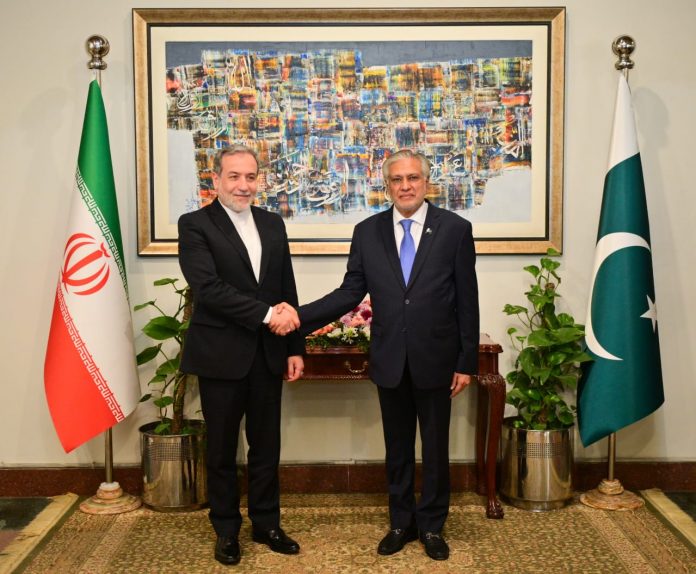
1. On the seventy-seventh anniversary of the landing of the Indian troops in Jammu and Kashmir, I am writing this letter to draw your attention towards one of the oldest unresolved international disputes.
2. The Jammu and Kashmir dispute has been on the Security Council’s agenda since 1948. The relevant resolutions of the Council affirm the right of the Kashmiri people to self-determination. They lay down that “the final disposition of the State of Jammu and Kashmir will be made in accordance with the will of the people expressed through the democratic method of a free and impartial plebiscite conducted under the auspices of the United Nations”. Unfortunately, these resolutions have not been implemented till date.
3. Notwithstanding the solemn commitments made by the Government of India to the people of Jammu and Kashmir, the Security Council and Pakistan to abide by and implement the relevant Security Council resolutions, India has progressively reneged on these commitments.
4. India has been trying different methods to consolidate its occupation of Indian illegally occupied Jammu and Kashmir since the landing of its forces in Srinagar on 27 October 1947. However, an intensified campaign to undermine the internationally recognized disputed status of Indian illegally occupied Jammu and Kashmir and to disempower the Kashmiri people has been in full swing since 5 August 2019. The Indian authorities have taken a number of steps aimed at altering the demographic composition and political landscape of the territory during the last five years.
5. The successive Indian actions in Indian illegally occupied Jammu and Kashmir, spread over the last 77 years, constitute a breach of the Charter of the United Nations, Security Council resolutions and international law, including the Fourth Geneva Convention.
6. Today, the Indian authorities are relentlessly suppressing dissent in Indian illegally occupied Jammu and Kashmir. Thousands of political activists and dissenters remain incarcerated, with 14 political parties declared outlawed. The local media is facing curbs, and the voices of civil society are being muzzled. Draconian laws such as the Public Safety Act, the Armed Forces Special Powers Act and the Unlawful Activities (Prevention) Act offer impunity to the Indian forces to arrest or kill any person and destroy any property.
7. The true representatives of the Kashmiri people have remained behind bars for the past several years. The Indian authorities have sought the death penalty for a prominent leader, Yaseen Malik, who was awarded a life sentence in 2022. The total period of detention of another well-known leader, Masarrat Alam Bhatt, exceeds 20 years. An incarcerated Kashmiri leader, Shabbir Ahmed Shah, has spent more than half of his 71 years of life in jails.
8. The human rights violations in Indian illegally occupied Jammu and Kashmir are well documented by human rights organizations and international bodies, including the Office of the United Nations High Commissioner for Human Rights. A number of special procedures mandate holders have also expressed concerns about different facets of this dismal situation.
9. Recently, the elections of the Legislative Assembly of Indian illegally occupied Jammu and Kashmir were held. However, any electoral exercise, pursuant to the Indian Constitution, cannot serve as a substitute to the grant of the right to self-determination.
10. Peace in South Asia remains a priority for Pakistan. It desires peaceful relations with all its neighbours, including India. However, a peaceful settlement of the Jammu and Kashmir dispute, in accordance with the Security Council resolutions and the aspirations of the Kashmiri people, is essential for durable peace in the region.
11. History bears witness to India’s occupation of large parts of Jammu and Kashmir having threatened regional peace and stability on a number of occasions. In the last few years, the Indian leaders have made a number of unwarranted claims about the territories of Azad Jammu and Kashmir and Gilgit-Baltistan. The frequency of these claims significantly increased in the run-up to India’s national elections and Indian illegally occupied Jammu and Kashmir Legislative Assembly elections, held during this year. While Pakistan is acting in a responsible manner and upholding the ceasefire on the Line of Control, the Indian leaders’ irresponsible statements remain a destabilizing factor in the strategic environment of South Asia. Against that backdrop, I wish to reiterate Pakistan’s call for strengthening the United Nations Military Observer Group in India and Pakistan.
12. Today, Jammu and Kashmir remains one of the most militarized zones in the world. The Security Council must exercise its responsibilities for the maintenance of international peace and security and take measures to implement its resolutions on the Jammu and Kashmir dispute. The Council should give full support to the Secretary-General in using his good offices to promote an equitable solution to the Jammu and Kashmir dispute in accordance with Security Council resolutions and the Charter. The Council should also urge India to:
(a) Revoke its unilateral and illegal actions of 5 August 2019 and the subsequent steps aimed at altering the demographic structure and political landscape of Indian illegally occupied Jammu and Kashmir;
(b) Improve the human rights situation in Indian illegally occupied Jammu and Kashmir;
(c) Release, immediately, the political prisoners, human rights defenders and dissenters;
(d) Discontinue the application of draconian emergency laws such as the Armed Forces Special Powers Act, the Public Safety Act and the Unlawful Activities (Prevention) Act;
(e) Withdraw heavy military presence from Kashmiri cities, towns and villages;
(f) Provide unhindered access to the Office of the United Nations High Commissioner for Human Rights, the Organization of Islamic Cooperation, human rights organizations and international media to investigate and report on the situation in Indian illegally occupied Jammu and Kashmir; and
(g) Implement fully the relevant Security Council resolutions, and allow the Kashmiri people to freely exercise their right to self-determination through a United Nations-supervised plebiscite.
